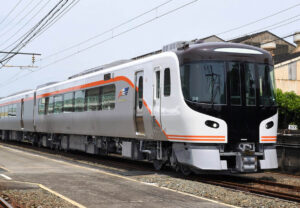 JR Central Unveils Prototype Hydrogen Engine Hybrid System
JR Central Unveils Prototype Hydrogen Engine Hybrid System
On November 26, 2024, JR Central announced the completion of a prototype hydrogen engine hybrid system as part of its efforts to achieve carbon neutrality.
Overview
Objective:
Development of hydrogen-powered vehicles to achieve carbon neutrality.
Base Vehicle:
The HC85 series hybrid system, used for limited express trains like the "Hida."
Key Features:
- Combines electricity generated by fuel cells and hydrogen engines with power from storage batteries to drive the vehicle.
- The hydrogen engine operates with lower hydrogen purity compared to fuel cells.
- Designed for high durability, high power density, and efficiency under heavy loads.
Development Highlights
Hydrogen Engine:
- Based on an industrial diesel engine, modified by development firm "i Labo."
- Designed to operate at a constant rotation speed.
Vehicle Control System:
- Includes advanced control features to optimize output from the engine and batteries according to load conditions.
Testing Plan
- November 2024: Performance evaluation tests of the standalone system at the Komaki Research Facility.
- Fiscal Year 2025: Simulated driving tests using a mock-up vehicle.
Significance Domestically and Internationally
This is the first initiative worldwide to develop a hybrid system using a hydrogen engine, distinguishing it from JR East's prototype "HYBARI," which utilizes hydrogen fuel cells.
Testing both fuel cell and hydrogen engine technologies enables exploration of diverse approaches to hydrogen-based railway systems.
Future Outlook
JR Central’s efforts represent a significant step in expanding hydrogen energy use and advancing decarbonization in the railway sector. Depending on test results, this innovation could pave the way for a new generation of propulsion systems across Japan’s railway network.